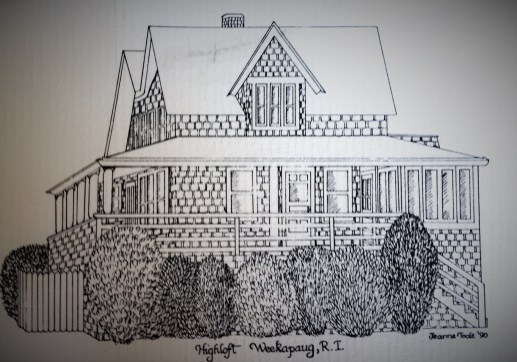
My mother helped me navigate my life with her common sense-ical consistency and dismissed my natural impatience with simple wisdom, Don’t wish your life away.
She often reminded me that life was not meant to be easy, but, Stay the course, and things will work out as they are meant to.
Rather than plainly criticize me when I went about my young life with urgency, she applied idiom meant to remind me to slow down.
“Well,” she’d say peeking over the reading glasses perched on her nose, one eyebrow slightly raised, “you’re busier than a one-armed paper hanger.”
To which I might reply, completely missing the point, “Whatever, mom, gotta go.” and off I’d speed to fill my life with the kind busyness that has little to do with productivity.
It would take years to let that particular idiom resonate but, at 56, I whisper it to myself from time to time when busyness morphs into weariness and agitation.
Step away, be unto yourself, but most of all, breathe.
Last Saturday night I dreamt of a baby; a porcelain-skinned, nearly hairless, baby girl. I didn’t hold the baby in my dream, she was just there next to me, her chubby arms dancing at nothing, serene and happy.
As I made my coffee the following morning, I couldn’t shake that baby from my consciousness and I did what we do these days, I googled dreams of babies and two possible meanings flashed before me: a need for affection or an impending life change.
As I have ample love in my life, the latter made perfect sense.
Last Sunday, the baby girl who sprung from me nineteen years ago hopped in a car filled with her worldly treasures and began her own journey, nearly across the country. She intends to start a new life in Colorado. And, as is her wont, not in traditional fashion: work first, school second. After all, “Mom, it’s ridiculous to spend money on that when I’m still trying to figure out what I want to be. I’ll take classes, but work is the best way for me to figure that out.”
Wait, wut? That sounds oddly like common sense.
Just a year ago, she boarded a plane for Africa, returned home three months later for a brief respite, then off to Ireland for a two-month junket. In that time I marveled from a distance at her confidence and innate ability to maneuver herself. When she finally returned home? Well…, I have enjoyed a companionable housemate for the last seven months. Sigh…
A week before she left, her belongings were either packed or vacuum sealed to ensure room in the car she made sure was given a thumbs up from her mechanic for a journey across the country. She did not race about saying goodbyes, but rather carefully made time for the people whom she will miss the most. There were no anxious demands that this or that be done for her and, there was a small part of me that wished she needed me more. She was well prepared for a major life change.
The night before she left, we took an early evening walk in my new neighborhood and meandered to the tennis courts, where a competitive match was being played. We sat among the spectators and the former owner of my home sat next to us. He had not met Grace before and calmly probed her about her plans. The engagement between the two of them was sweet, and I faded into the background.
At first, she only gave him the skeletal outline, but his interest encouraged a reflective conversation about seeking what you want in life. I listened as he offered her something beyond advice, follow your heart, work hard, just keep going, one day at a time. I could nearly see his words seep into her.
Grace confessed to me the following evening, the same night I dreamt of that beautiful baby, that before that conversation with a man she met by happenstance, she had been feeling anxious, “I think I was meant to meet him, Mom. He calmed me.”
I understood why. As I listened to him, I heard common sense.
As I said goodbye the next day, I was anxious and emotional. My baby girl? Cool as a cucumber.
I write, not to share that I’ll miss my girl; that’s obvious and I am not unique in this change of life. What most fascinated me is watching her “be”, rather than watching her become. It moves me to observe her welcome life with the kind of enthusiasm that only works when it’s wrapped in common sense.
I write with an awareness that the common sense my mother encouraged in me didn’t really find traction in my life until recently. It is likely that I will forever be a smidgen too impetuous and emotional for my own good.
Grace was only five when her grandmother died and therefore never had the benefit of my mothers often lyrical counsel. I watch my daughter and wonder if perhaps the lessons of my mother, which too often passed through me, somehow made a home in her.
I suppose I’ll never know, but I suspect that the baby in my dreams was a bellwether of change in Grace’s life, as well as my own. Of course, she’ll be back to visit from time to time, but Connecticut, I think, will no longer be her home. She has the common sense to know that we make our lives; that if we want one filled with color and texture, we seek it. It won’t knock on our door and beg us to join in, but rather will come to us when we are at peace with ourselves.
Applying common sense to the adventure? My mother would say, That’s as plain as the nose on your face.

